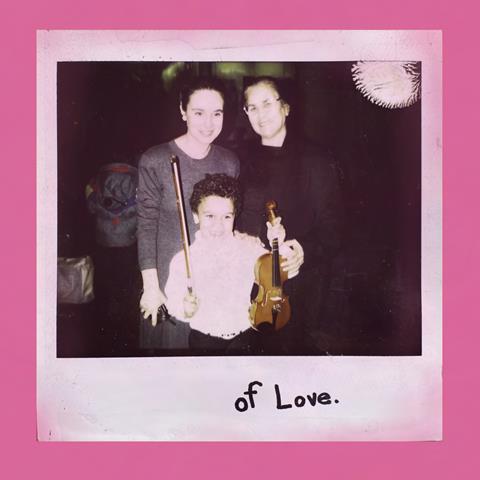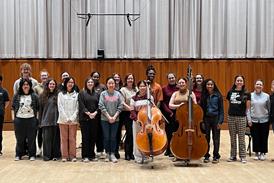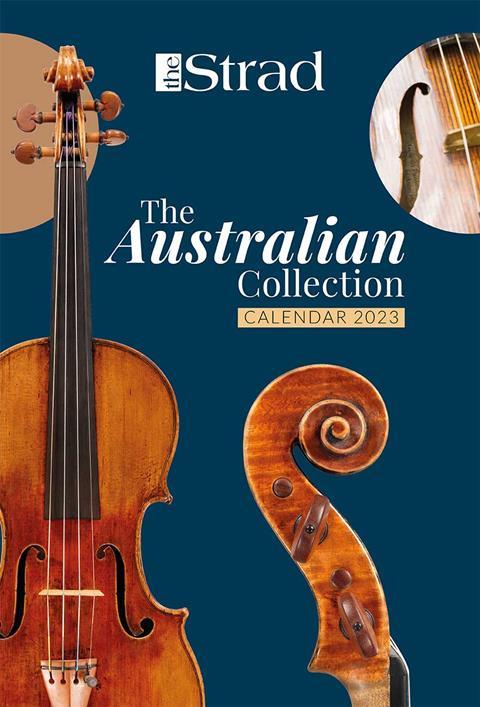Violinist and composer Curtis Stewart releases of Love., an album dedicated to his mother, Elektra Kurtis-Stewart, who died of brain cancer in 2021, aged 66. He shares how he turned to composition during the caretaking and grieving process

Discover more Featured Stories like this in The Strad Playing Hub
How did your mother’s abilities as a cross-genre violinist and composer influence your formative years as a musician?
I had no clue my mom was a cross-genre musician until after college - I thought that what she did was just what being an artist was, that musicians led multiple lives playing multiple styles of music and insatiably learnt about as much music as they could. I hope that trait has been passed down to me.
My mom and I ended up going to a lot of classes together in addition to my twice-weekly violin lessons and music theory classes - we would check out Simon Shaheen, Henry Threadgill, Steve Coleman - we would play around with ii - V chords together, she would compose and speed up her compositions in Finale and I would dance to them as a kid - she would speed them up way beyond anything playable and as they got faster and faster I would fall out laughing on the living room floor. I would play in her band ‘Ensemble Elektra’ which combined Greek, contemporary classical, Middle Eastern, reggae, jazz and a touch of hip-hop music. She hung out with rappers to figure out how to get their verses about Aphrodite to fit into Greek patterned 7/8 grooves.
All this showed me what an earnestly curious and open-minded music creator looks like. She was a classical violinst, a Greek violinist, a jazz violinist, an educator, a killer Gumbo chef, among many other things. She came from an opera-singing mother in Poland, played with the Roma people outside Warsaw, and had a bassoonist/world music percussionist brother. Her ingenuity, courage and groundbreaking way of looking at music gave me my compositional ’mother-tongue’ and framed what I thought was ‘normal’ as an American composer.
How did you turn to music after your mother was diagnosed with brain cancer, and during the caretaking process?
Composition and writing verse became my primary way of healthily coping with the stress of being a caretaker. I would learn how to chop up beats on my laptop and the digital audio workstation while she was getting her MRIs - I would fine-tune orchestrations and balance layered recording mixes while she was sleeping in the chemotherapy chair. When I couldn’t sleep at night because I was on caretaker duty, or was just too stressed, I would write lyrics to capture those feelings, to put the anxiety of dealing with so much unknown into words, to get the unbearable tension of responsibility out of my head.
There are moments I could never share with her, like when the doctor said she was too far gone and we had to stop chemo, she didn’t really understand that interaction because of the brain cancers effect on her cognition - so I walked her across Central Park from the hospital back home, with her wheelchair, crying, but when she turned around I gave her a big smile. She exclaimed about what a beautiful day it was and we listened to a jazz band play on 97th and Central Park West - I just held her hand. Music was the place I could put those complex feelings of sadness, worry, hope and fury - each song captures a moment of that process.
Grief is often a difficult topic to discuss, but something that basically everyone has to deal with at some point in their lives. How do you hope that of Love. can help others grappling with grief?
As a caretaker, I always look back at what I could have done more. The first six months of grieving were mostly a crippling sense of guilt - I should have shown up more, I should have gotten her a pet, we never went to Greece after she got sick. Eventually, other feelings started to replace those - while my mom was sick I never felt pity for her, I saw her as the strongest human being on the planet because of her tenacity and humour - but when she passed, I started reflecting on her situation and wasn’t strong enough to avoid feelings of pity creeping in (which I know she would have been super annoyed about).
That realisation turned into a song on the album. Recently, since doing some of these songs live a few times, I have noticed happy memories peeking through. Everyone’s grief is different, and a lot of times my own emotional layers get buried in compulsive actions, denial and defensive thoughts - when they fall away, a crack in myself opens again, a big crying day passes through, a song emerges to process that feeling, and it feels like healing begins again.
Grief never seems to go away, and I have learnt to hope that it doesn’t, because I will never stop loving my mom
Writing songs made me feel like that wave of pain was ’complete’ at first - but it always seems to return in surprising ways - grief never seems to go away, at least it hasn’t after two years for me- and I have learnt to hope that it doesn’t, because I will never stop loving my mom, and appreciating who she is to me.
I hope those grieving listen and see strength, identity or hope in themselves - that they can make it through those extremely hard times and have hope that something beautiful might come out the other side - that they continue to fight to recognise that the pain of loss is also the strength of love. For those not grieving, I hope the album portrays a wide palette of emotion to lay into, that you can take this introspective virtual reality journey and open up dialogue about loss, love, the scary curious scope of our human life cycle and how art fits into it.
Curtis Stewart’s album of Love., dedicated to his mother Elektra Kurtis-Stewart, will be released on 2 June on New Amsterdam Records. Watch the video of his single Drift to Wake here:
Watch: PUBLIQuartet performs ‘What is American’
Discover more Featured Stories like this in The Strad Playing Hub
The number one source for playing and teaching books, guides, CDs, calendars and back issues of the magazine.
In The Best of Technique you’ll discover the top playing tips of the world’s leading string players and teachers. It’s packed full of exercises for students, plus examples from the standard repertoire to show you how to integrate the technique into your playing.
The Strad’s Masterclass series brings together the finest string players with some of the greatest string works ever written. Always one of our most popular sections, Masterclass has been an invaluable aid to aspiring soloists, chamber musicians and string teachers since the 1990s.
This year’s calendar celebrates the top instruments played by members of the Australian Chamber Orchestra, Melbourne Symphony, Australian String Quartet and some of the country’s greatest soloists.













































No comments yet